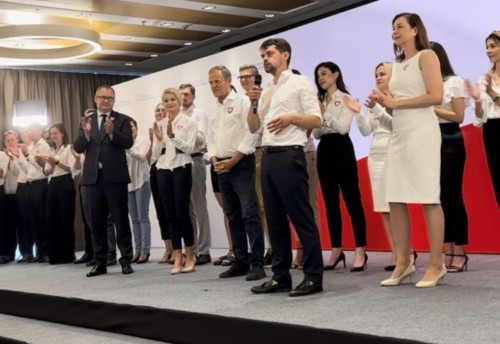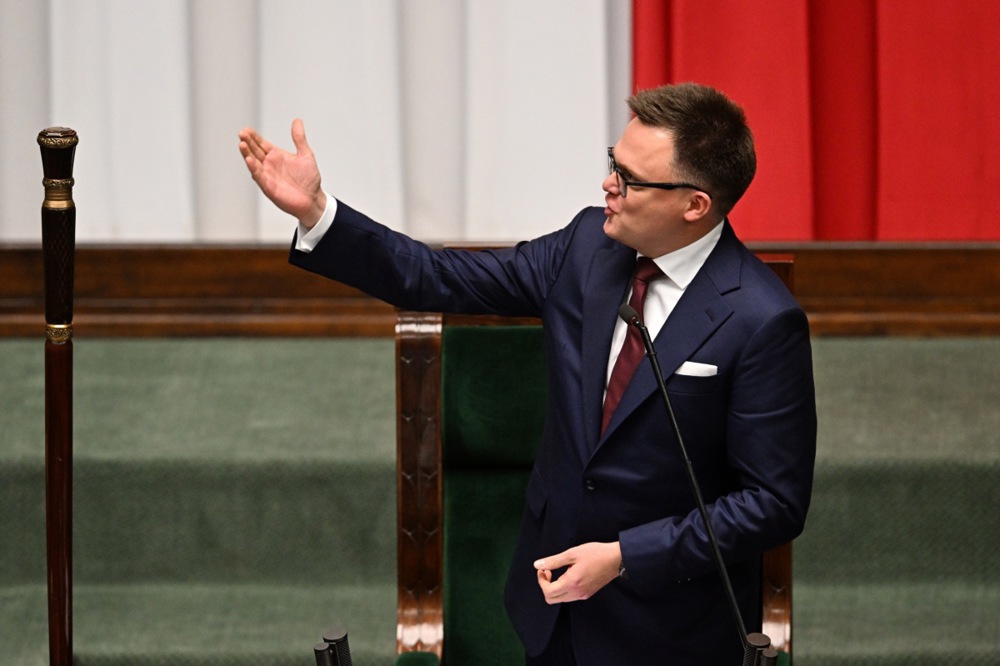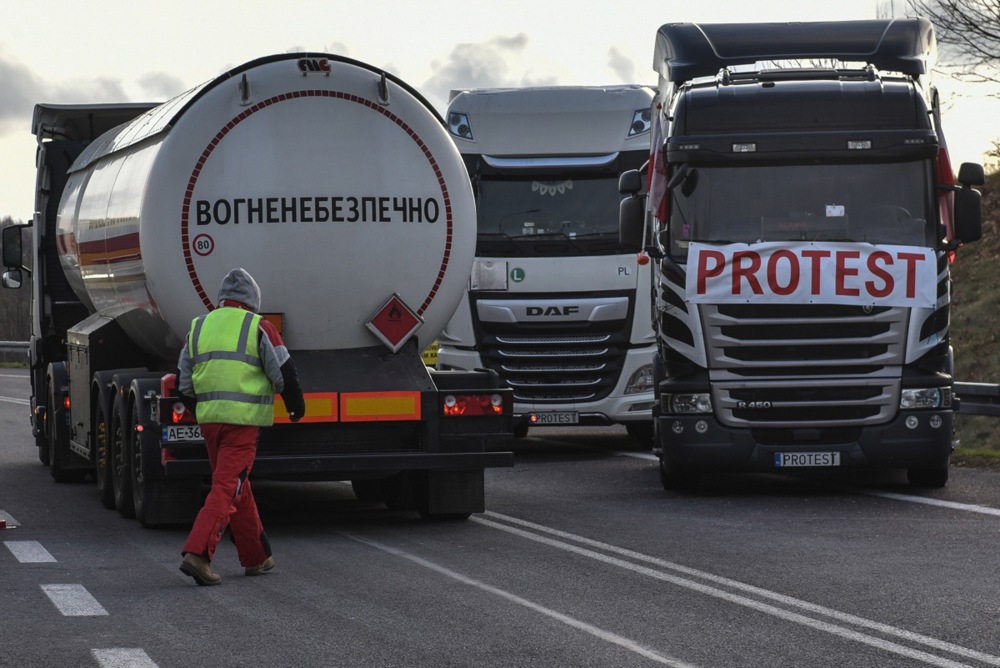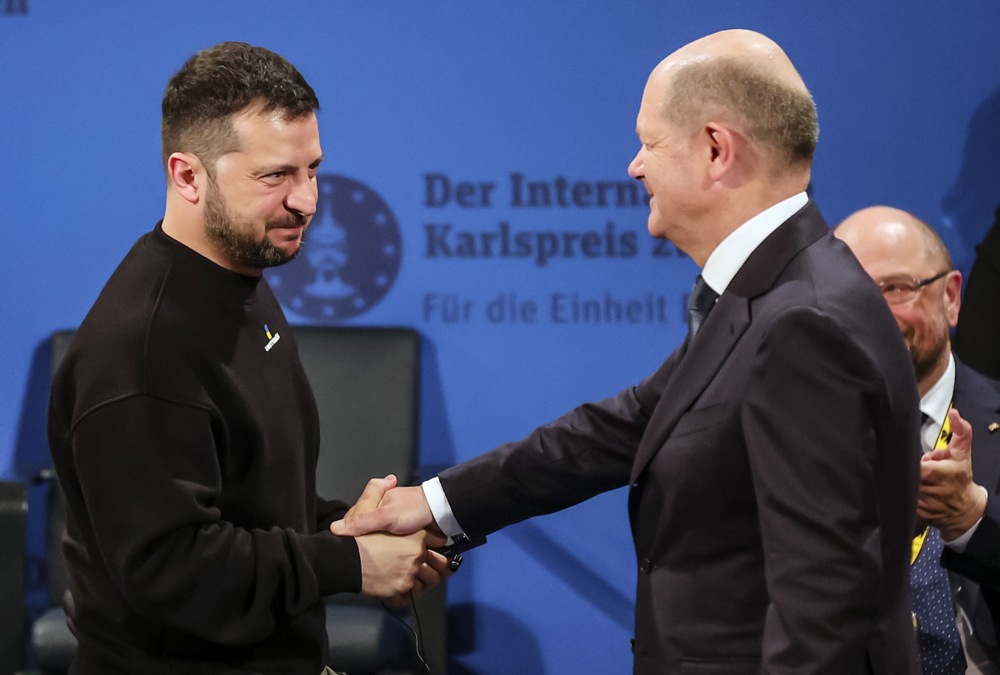Poland’s farmers have demonstrated in at least 180 locations against the implementation of the European Union’s Green Deal programme and the uncontrolled influx of goods from Ukraine.
Slow-moving tractors and groups of protestors on foot halted traffic all over Poland as agricultural workers joined Europe-wide action highlighting anger at policies they believe endanger the future of their industry and trade.
The outbreak of the Polish farmers’ protests, which began on January 24 and were signalled a few days beforehand, came on the heels of months of demonstrations and border blockades by Polish truckers against the liberalisation of permits for Ukrainian truckers, which they said had hurt their domestic businesses.
The farmers’ action is likely to continue over the coming days. “Europe is cultivation and breeding” was the slogan of the nationwide demonstration and its main demand was to stop “uncontrolled imports of agricultural products from Ukraine and other countries outside the EU that do not comply with European standards”.
Adrian Wawrzyniak, a spokesman from the farmers’ Rural Solidarity union, told Brussels Signal his members “cannot compete with Ukraine, so we expect, among other things, to introduce quotas that existed before the war”.
“Ukrainian grain should go where it belongs, in the Asian or African markets, not to Europe.”
He claimed Polish agricultural workers are at a disadvantage, bound by rules and costly environmental regulations that producers in other countries are not subject to, and called for a “strategy for Ukraine’s accession to the EU in the field of agriculture”, to be prepared.
Furthermore, farmers have demanded a review of the EU’s Common Agricultural Policy. They are also dissatisfied with a range of restrictions associated with the European Green Deal and want changes and more “flexibility” in the strategy pursued.
Tomasz Obszański, also from Rural Solidarity, told Brussels Signal on January 24 that “the Green Deal and eco-bureaucracy being imposed by the EU are destroying Polish farming”.
He said Ukrainian produce was making Polish food production and processing unprofitable and described the high cost of fuel in the country as a “blight on the landscape”.
Agriculture minister Czesław Siekierski visited some of the protesting farmers in Słupno, central Poland and later wrote on X: “The European Union has gone too far when it comes to the requirements related to the Green Deal.
“When we face threats on the market caused by the situation in Ukraine, the pandemic, high inflation and increased production costs, farmers cannot be burdened with additional tasks to counteract climate change.”
Polish Prime Minister Donald Tusk told reporters on January 24 he would seek a resolution to the Ukrainian imports issue that would not break EU rules and still be acceptable to both Polish and Ukrainian sides. He acknowledged that obtaining such an agreement would be difficult regarding Ukraine.
During his visit to Kyiv on January 22, Tusk said Ukraine’s President Volodymyr Zelenskyy and Prime Minister Denys Shmyhal had “reaffirmed their willingness to work together to resolve Poland-Ukraine issues such as grain imports and the border blockade by transport companies”.
Tusk stressed that Warsaw and Kyiv would “seek practical solutions in friendly talks and maybe there won’t be a need to involve international institutions”.
Despite that, the protests are portrayed by some as being party political.
Jerzy Plewa, a former Polish deputy agriculture minister, told commercial radio RMF24 that the demonstrations were not “spontaneous” action by farmers but a move by some activists to gain credibility with the Polish agricultural sector, with an eye on upcoming elections.
That was seen as an allusion to the fact that the opposition Conservatives (PiS) party is keen to shore up support in rural areas where it lost votes during October’s general election that saw it removed from power nationally.





